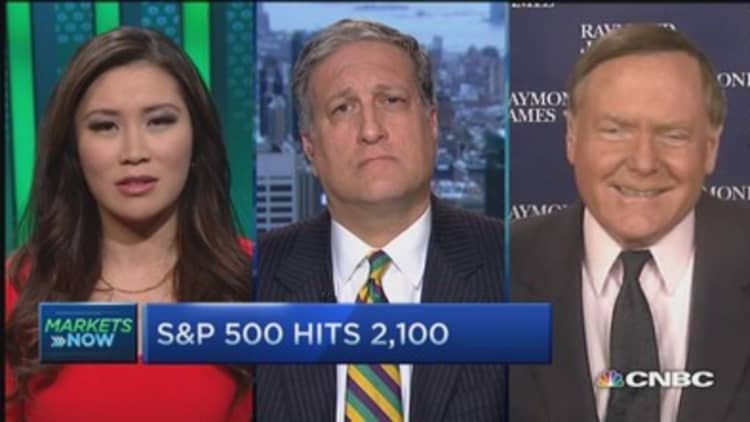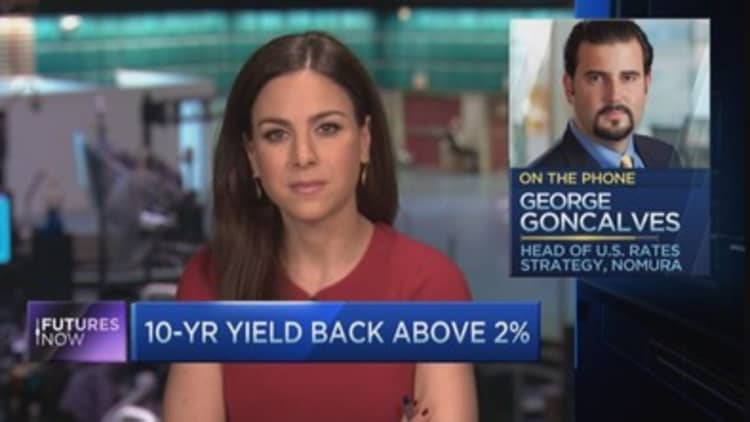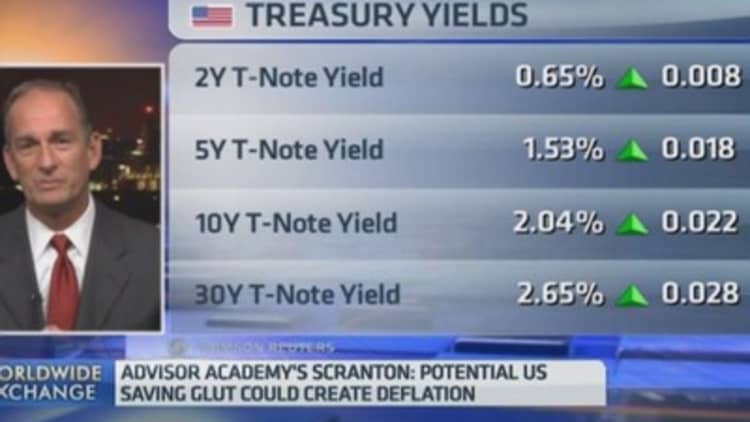


Interest rates will regain central attention on Wednesday as U.S. economic data and the release of the FOMC meeting minutes shed further light on when tightening might occur.
"I think the biggest thing is the minutes of the Fed meeting," said Randy Frederick, managing director of trading and derivatives at Charles Schwab. He said the "safest thing is to stay away from (the Greece situation)."
Another important data point released on Wednesday is industrial production for January at 9:15 a.m.. Analysts polled by Reuters expect the key capacity utilization rate, which measures slack in a firm, to edge up slightly from December to 79.9 percent.
"Industrial production is critical because you've had some disappointing economic numbers over the last week or so as the result of the dollar's strength," said Jack Ablin, chief investment officer at BMO Private Bank.
Aside from the strong monthly jobs report nearly two weeks ago, last week's economic data was mostly disappointing, with misses in both retail sales and jobless claims. To be sure, some analysts pointed out that the overall trend is still positive.
Read MoreHedge funds hate stocks, but that's bullish
The Producer Price Index report at 8:30 a.m. will shed light on inflation, the second key ingredient that the Fed watches besides employment when determining a rate hike.
Kim Forrest, senior equity analyst at Fort Pitt Capital, said she is looking for signs of price declines in the data.
"See if deflation starts leaking out of oil into other areas," she said, noting that excessive decline in prices could force the Fed to begin QE again.
Lack of a resolution between Greece and the euro zone on Monday initially disappointed U.S. stocks on Tuesday, although analysts pointed out that stocks were not declining as much as expected.
Read MoreIs the market indifferent to possible Greece exit?
Ablin said that "more and more investors are recognizing the fact that if Greece does leave the euro zone … this isn't the end of the world."
Stocks later turned positive on afternoon reports that the country intends to ask for a loan extension on Wednesday.
The S&P 500 rose to a new intraday high and closing up at its second record for the year of 2,100.34. The Dow Jones industrial average closed up at 18,047.58 and the Nasdaq closed up at 4,899.27.
The U.S. 10-year note yield also rose sharply on Tuesday following the reports, jumping from just above 2 percent to as high as 2.15 percent
The reallocation of assets from bonds into equities demonstrates that the "safe haven trade is put to the sidelines," said Peter Cardillo, chief market economist at Rockwell Global Capital.
"Obviously today's (morning) pullback was a non-event," he said. "Time will take the S&P up to 2,121 before we see some resistance."
Schwab's Frederick also cautioned that the recent rally might be temporary.
Renewed disruption in oil, Greece and Ukraine could "affect the markets adversely," he said in a note.
"Technical indicators, including the Open Interest Put/Call Ratio for Equity options sitting at a 15-year high, also show some very troubling signs that the current uptrend may be very short-lived," he said. "The preponderance of evidence suggests that investors should maintain their hedges and remain very cautious this week."
"I think the 10-year is trading off the strong dollar and what the Fed may or may not do," said Marc Chaikin, CEO of Chaikin Analytics. It has a "big impact on utility stocks. That yield has tended to go up with the price of crude."
Oil continued to stabilize, with WTI crude settling up 75 cents to $53.53 a barrel on Tuesday.
Chaikin said he is also watching earnings from engineering firm Fluor and exploration and production company Marathon Oil after the bell to see how cheap oil has affected them.
We may "see some spillover into energy stocks," he said.
In housing trends, mortgage applications are due at 7 a.m. and housing starts at 8:30 a.m.
Read More
Companies reporting before the bell include Actavis, Duke Energy, Garmin, Hyatt and Yandex. Fidelity National Financial and Marriott are among the firms posting results after the bell.


